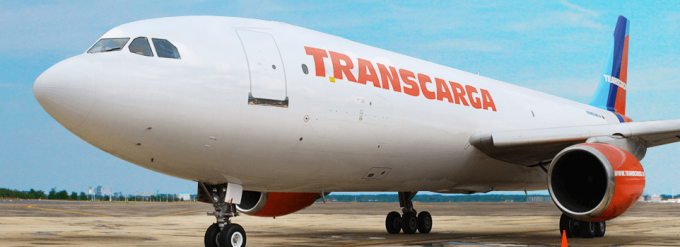Strong Q4 and booming ecommerce drives 'record peak season' for air cargo
A “very strong Q4” for air cargo will likely turn into a record peak season, ...

Centurion and Amerijet have successfully hampered Venezuelan carrier Transcarga’s attempts to operate in the US by objecting to the US Department of Transport over its traffic rights.
The moves, claimed Transcarga, leave the routes available only to US carriers, and now open to substantial price hikes.
Transcarga ...
Keep our news independent, by supporting The Loadstar
Four crew members still missing as Wan Hai 503 continues to burn
Explosions and 'out-of-control' fire reported on Wan Hai box ship
Carrier price hikes hold, driving spot rates higher as space gets scarcer
Predatory rivals circle as the ripples from DSV's Schenker buy widen
MSC Elsa crew face criminal probe, as Wan Hai 503 firefighters battle on
Transpacific rates ease as capacity boost proves too much for trades to digest
'It's driving us mad', say forwarders as US court fails to end tariff turmoil

Comment on this article
Julio J. Marquez
January 14, 2017 at 3:55 pmUnfortunately, DOT did not grant Transcarga Intl. Airways, C.A.’s non-scheduled all-cargo authorizations from November 15, 2016 due to objections filed by three (3) US carriers which, in our opinion, were only filed because of commercial and competitive considerations. Due to these unfounded arguments, the DOT denied our authorizations, largely based on one of the objections: the alleged discrimination of fees imposed by the INAC for non-scheduled all-cargo authorizations on foreign carriers as opposed to Venezuelan carriers. According to these US airlines, this difference in fees, that do not exceed US$500, is affecting their finances, but this seems ludicrous to us if you take into account all the other operating costs and expenses.
We strongly believe that the representatives of these US carriers in Venezuela could have discussed this issue regarding differences in fees directly with the Aeronautical Authority that controls and regulates civil aviation in Venezuela (INAC) or, at any time, they could have made all reasonable efforts to explain to both country´s Civil Aviation authorities the background and cause for their complaint, so the DOT and the INAC could reach an agreement, since the problem they address is solely at governmental decision-making levels, instead of attacking the only Venezuelan all-cargo carrier operating the US-Venezuela market by restricting its operations to US.
The commercial objectives that prompted these objections overcame any logical reasoning and the DOT, without looking beyond these unfounded arguments, made a decision that created a monopoly on the US-Venezuela routes in favor of the US carriers. There are currently nine (9) US carriers covering these routes as opposed to only one Venezuelan carrier competing against them, up until November 14, 2016 (Transcarga). The Venezuelan government grants more than one hundred (100) monthly flight permits to these US carriers whilst at the present time US authorities are not allowing the only Venezuelan carrier even a single flight to the US.
The door is still open for us, though. DOT has stated that will accept a new application from Transcarga in the following months, subject to providing proper evidence that reciprocity and equality with respect to authorization fees is presented.
The most interesting and surprising part of this situation is how these US carriers chose to undermine the INAC’s reputation by making allegations of discriminatory treatment and lack of reciprocity while, in the meantime, they have never stopped enjoying the benefits of operating freely in the US/Venezuelan market.